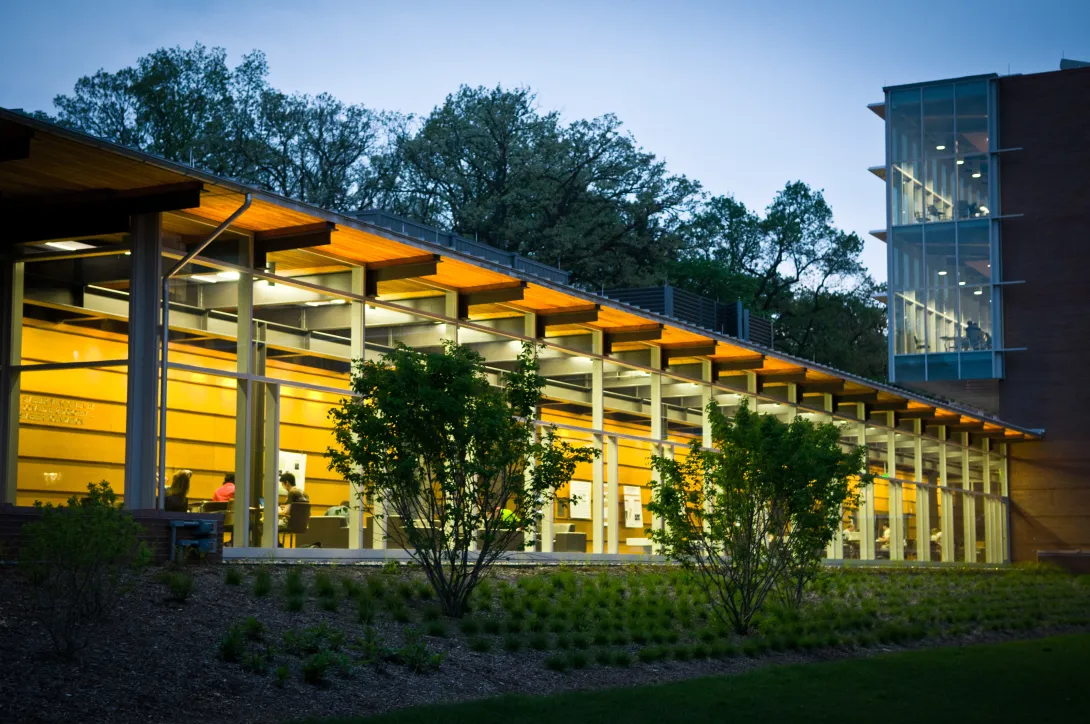The Earth & Environmental Sciences (EES) Department is part of Lehigh University's College of Arts and Sciences. Lehigh is an independent, nondenominational, coeducational university. Founded in 1865, it has approximately 5,000 undergraduates within its three major colleges: Arts and Sciences, Engineering and Applied Science, and Business and Economics. There are approximately 2,100 students enrolled in various graduate programs and in the graduate-only College of Education. The 700-acre campus includes superb athletic facilities, natural areas, a health club, and cultural venues, including the Zoellner Arts Center.
Our Mission
We study the Earth and environment, how the solid earth, oceans, atmosphere, and life interact to shape the world in which we live. Our research is incorporated into field-based, experiential, multidisciplinary education and integrates observational, experimental, theoretical, and numerical approaches. We seek to instill in our undergraduate and graduate students the critical thinking, quantitative, and communication skills needed to succeed in life. Engagement with diverse perspectives and people enhances our research and is integral to educating our students. We seek to enhance earth science literacy through academic and outreach activities so that individuals and communities can make informed decisions about land use, biodiversity, resources, hazards, and climate change. Read our ten-year strategic plan.
Diversity and Inclusion
The EES department is committed to the personal and intellectual growth of our students, faculty, and staff by promoting a positive and inclusive environment. We strive to recruit, support and fully engage a diverse student body, staff and faculty, and to create and maintain a collegial and rich learning environment that values and promotes inclusiveness in all activities. We have joined with the entire University community in embracing The Principles of Our Equitable Community, and we work with university and national efforts to support our diversity and inclusion mission.
Our History
EES was formed in 1991 through the merger of faculty from the Geological Sciences Department with environmental biology faculty from the Biology Department. Since then we have worked to develop innovative programs in environmental science while maintaining strengths in studies of the solid Earth and environmental change. EES is housed in the award-winning STEPS facility, a state-of-the-art LEED-certified green building that occupies a central position in Lehigh's intellectual and campus life.
Location
Bethlehem, Pennsylvania (pop. 75,000) is located in the Lehigh Valley, 50 miles north of Philadelphia and 90 miles west of New York City; best access is via Interstate 78, U.S. Route 22, or Lehigh Valley International Airport (airport code ABE). Founded in 1741, Bethlehem has a rich cultural heritage in the Moravian tradition. Historical buildings have been well preserved giving the community a charming Colonial atmosphere. The Lehigh Valley (Allentown, Bethlehem and Easton, combined population of some 822,000) is the chief commercial and industrial center for east-central Pennsylvania and is the third largest population center in the state after Philadelphia and Pittsburgh.
Undergraduate study
For undergraduates, the EES Department offers BA and BS degrees as well as a minor. The accessible BA degree in Earth and Environmental Sciences is ideal for students interested in geology, environmental science, and/or ecology but having career goals in areas such as law, journalism, business, and government. The flexible BA degree in EES also makes it easy for students to pursue a double major or design a degree that matches their interests. For students interested in technical careers in research or industry, the department offers a BS degree in EES. Finally, EES offers a straight-forward minor program that can include a significant component of field-based learning. More information on our undergraduate programs can be found on our undergraduate pages.
Graduate study
For graduate students, the department offers M.S. and Ph.D. degrees in Earth and Environmental Sciences. M.S. programs typically require two years of full-time effort and a Ph.D. about four years. Graduate studies are directly aligned with our research programs, spanning numerous disciplines within the fields of ecology, environmental science, and geology. The department has particular depth of expertise in the areas of the solid Earth (link) and environmental science (link). The intermediate size of the department (15 faculty, three support staff, several postdocs and research scientists) and its range of active research programs provide an intimate atmosphere in which students receive extensive experience with diverse analytical and theoretical approaches to the study of geological, ecological, and environmental processes. We usually have about 20 to 25 students in the EES graduate program who have come to us from many states and several foreign countries. In recent years, our graduates have been very successful in finding employment in environmental consulting firms and energy companies, as post-doctoral researchers, in governmental agencies, and as faculty at colleges and universities. More information on our research and graduate programs can be found on this website.

